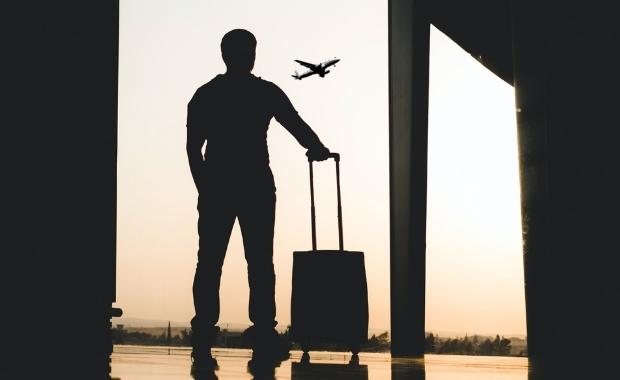Success Advice
Here’s Why You Need to Cultivate the Habit of Traveling

Traveling has innumerable advantages. One of them is to build leadership skills to lead people effectively.
Traveling is taxing for some people while it is exciting for some people. It depends on the mindset of the people. Those who are lazy don’t appreciate traveling. They appreciate staying in one place to enjoy their life. On the other hand, those who appreciate a lively life enjoy traveling immensely. Traveling is very good as it helps people come out of their comfort zone, see new places, and meet people with diversified languages, cultures, and habits. It helps people understand and respect others’ cultures, languages, and food habits.
It provides a broader perspective of the world, promotes tolerance, and enhances empathy. It helps lead life effectively. It also promotes fraternity and brotherhood apart from building confidence.
Advantages of Traveling
Traveling helps you discover yourself. It makes you emotionally more intelligent to excel as a leader. Traveling is essential to excel as a well-rounded personality. It helps you plan and organizes well. It inculcates self-discipline. It helps you encounter new challenges and overcome the fear of failures and the unknown.
Traveling broadens your horizons. It helps you to be open-minded, offers a break to your routine life, and provides patience. It relieves stress and unwinds your mind. You can make new friends. You will discover your strengths and weaknesses. You can observe the behavior of the people around you.
Traveling makes you confident. When you travel independently, you learn how to make decisions in volatility, uncertainty, complexity, and ambiguity. You become an effective leader. It is one of the reasons, traveling is encouraged in educational institutions to enable students to see the outside world, understand the practical challenges, and develop tolerance and empathy.
“When I was very young I discovered that, for me, a journey is the best way to learn.” ―Paulo Coelho
Traveling is a transformation tool. It transforms and provides a new direction to your life. For instance, Steve Jobs visited India as a young man in the ‘Hare Krishna movement’ and spent some time. It provided a new direction to his life. Traveling helps you introspect and reflect on your life. It opens new areas to explore. Many great leaders traveled and learned new things. They transformed themselves. If you look at Buddha, he traveled widely and transformed himself and the people around him.
When you travel, you come out of your comfort zone and think more because you have to manage your time and finances. If you go with a group, you learn to get along with others and develop team-building skills because you have to coordinate with the team members. You organize and plan well. You adapt to new environments. You observe different people and their practices and start respecting them. You become a risk-taker and a better decision-maker. You encounter setbacks and failures and become resilient. You think creatively to come out with innovative ideas. You look at commonalities and ignore differences. You excel as a global leader.
Learning and Leadership
There are many ways to learn such as by observation, experience, reading, reflecting, teaching, training, and traveling. Learning is not confined to the classroom alone. It is beyond books and the classroom. Some writers travel and write by observing nature and people. When you look at Paulo Coelho he traveled and authored a book, The Alchemist based on his experiences. Travelling provides a clear view of the world, and for some people, it unlocks their creativity to write books based on the happenings around them. There are travel writers who travel extensively to author books. And to become a travel writer, it is essential to be passionate about traveling, have an inquisitive and open mind. The travel writers must also have a healthy body, an observant mind, and the ability to express in words easily.
My Experiences in the Indian Air Force
I had the privilege of traveling along with the eminent dignitaries in India in MI 17 helicopter when I served in the Indian Air Force. I traveled to several parts of India in MI 17 helicopter, met diversified people, and learned various cultures and habits. It helped me empathize with them and respect all people. I traveled to thick forests in North East India, hot deserts in Rajasthan, and frost-bound heights in the Himalayas.
I got habituated to inclement weather conditions and built a healthy body with great stamina. My mind also became healthy as I interacted with diversified people in India. Traveling helped me improve my attitude, personality, and behavior. I started leading in the armed forces. Then I realized that to travel is to lead.
If people don’t travel, they live like frogs in the well. Hence, it is essential to cultivate the habit of traveling at a young age itself to enable the youth to grow with empathy and tolerance. To summarize, people need to travel to come out of their comfort zone to see the beauty of nature and understand diversified people in the world. To conclude in the words of Aldous Huxley, “To travel is to discover that everyone is wrong about other countries.”
Business
The Simple Security Stack Every Online Business Needs
Most small businesses are exposed online without realising it. This simple protection stack keeps costs low and risks lower.

Running a business online brings speed and reach, but it also brings risk. Data moves fast. Payments travel across borders. Teams log in from homes, cafés, and airports. (more…)
Business
If Your Business Internet Keeps Letting You Down, Read This
From smoother operations to better security, dedicated internet access is quietly powering today’s high-performing businesses.

Today, a dependable internet service is the bedrock for uninterrupted business operations. Many organizations rely on stable online connections for communication, data transfer, and customer interaction. (more…)
Did You Know
How Skilled Migrants Are Building Successful Careers After Moving Countries
Behind every successful skilled migrant career is a mix of resilience, strategy, and navigating systems built for locals.

Moving to a new country for work is exciting, but it can also be unnerving. Skilled migrants leave behind familiar systems, networks, and support to pursue better job opportunities and a better future for their families. (more…)
-

 News2 weeks ago
News2 weeks agoBrandon Willington Builds 7-Figure Business by Ignoring Almost Everything
-

 Health & Fitness3 weeks ago
Health & Fitness3 weeks agoWhat Minimalism Actually Means for Your Wellness Choices
-

 Did You Know2 weeks ago
Did You Know2 weeks agoWhy Most Online Courses Fail and How to Fix Them
-

 Business2 weeks ago
Business2 weeks agoIf Your Business Internet Keeps Letting You Down, Read This
-

 Business6 days ago
Business6 days agoEntrepreneur’s Guide to Pay Stubs: Why Freelancers and Small Business Owners Need a Smart Generator
-

 Business5 days ago
Business5 days agoThe Simple Security Stack Every Online Business Needs
-

 Scale Your Business4 days ago
Scale Your Business4 days ago5 Real Ways to Grow Your User Base Fast
-

 Business3 days ago
Business3 days agoThe Salary Shift Giving UK Employers An Unexpected Edge



























